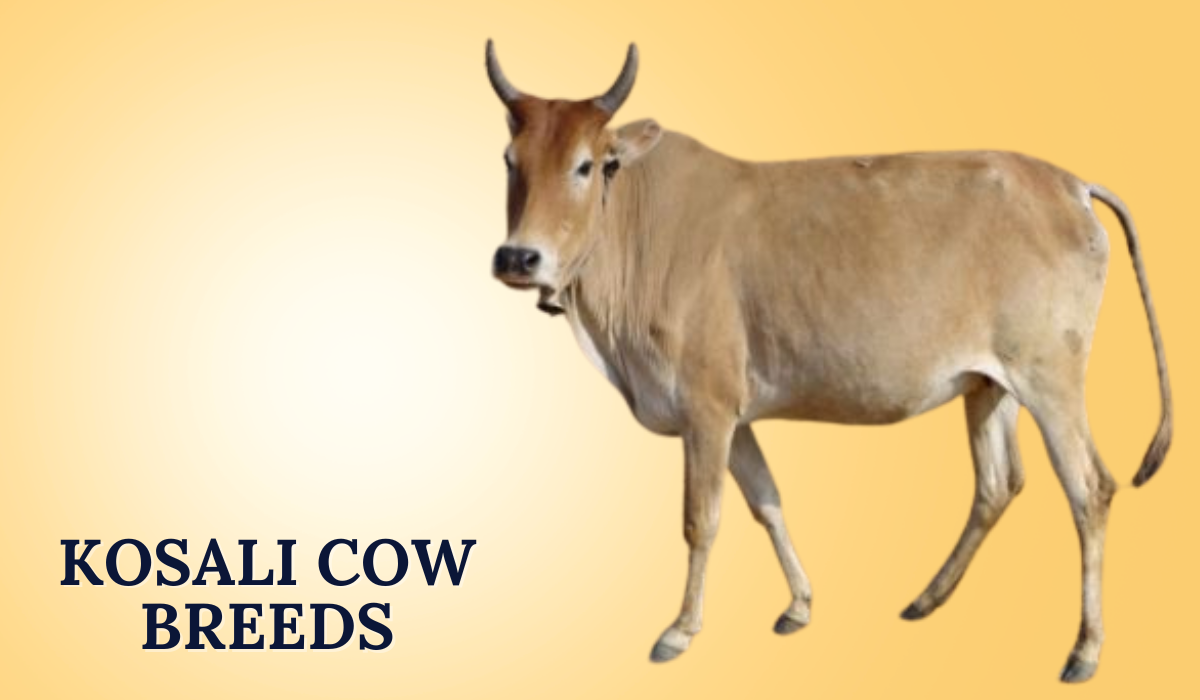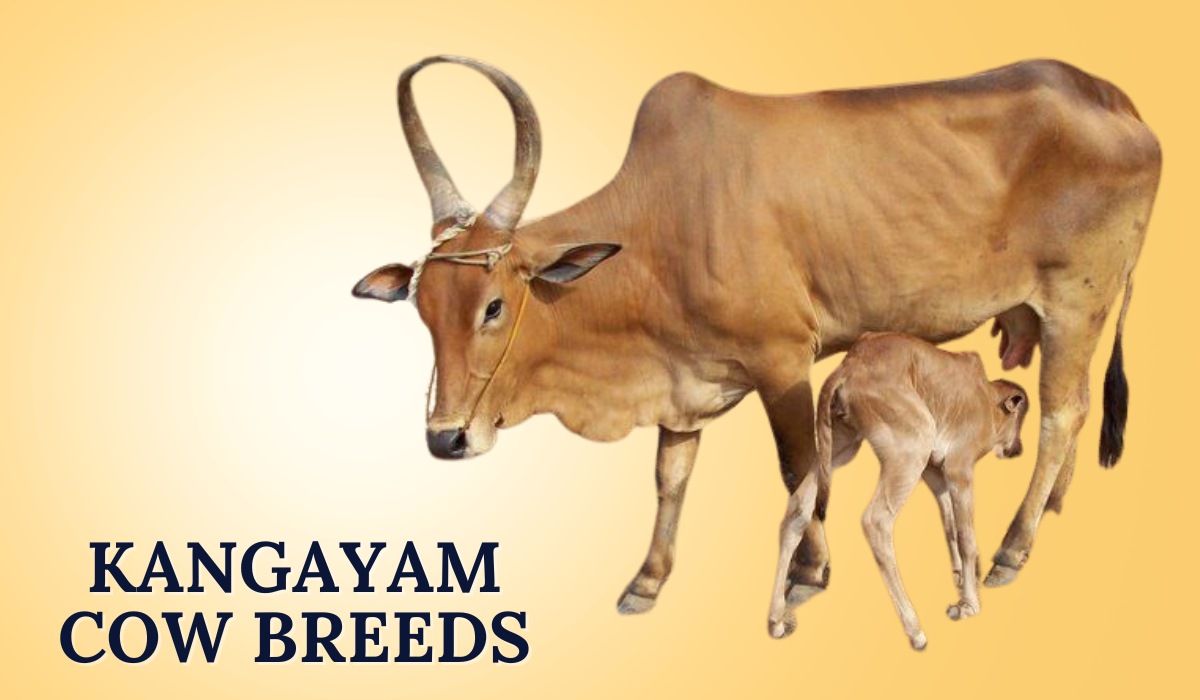The Kosali Cow Breeds In India are a lesser-known but significant cattle variety, primarily found in the central and eastern regions of the country, particularly in areas like Chhattisgarh, Odisha, and Madhya Pradesh. Known for their resilience and adaptability, these cows thrive in both plains and hilly terrains. Kosali cows are medium to large-sized, with a well-developed physique and a sturdy frame.
They primarily rear Kosali cows for their milk, which is rich in nutritional value, making it an essential resource for rural communities in these regions. In addition to their milk, farmers value Kosali cow breeds in India for their strength, using them as draft animals in agricultural activities.
These cows thrive in the local climate, enduring heat and drought conditions with ease. The breed requires minimal medical intervention, making it low-maintenance and highly valuable to farmers. Although the breed is not as widespread as other indigenous cattle varieties, ongoing efforts aim to conserve and promote the Kosali cow, recognizing its role in India’s agricultural sustainability and rural economy.
Origins and Characteristics of Kosali Cow Breeds in Madhya Pradesh
The Kosali cow breeds in Madhya Pradesh are indigenous to the region, having evolved to thrive in the semi-arid conditions of central India. These cows are known for their adaptability and hardiness, making them an excellent choice for small-scale farmers. Kosali cows are medium to large in size, with a sturdy build that allows them to handle both dairy production and draught work. They have a distinct coat, typically light brown or grey, and their calm temperament makes them easy to manage.
Farmers primarily raise Kosali cows for their milk. Additionally, they use them for agricultural tasks such as plowing fields, making them a multi-purpose breed. Their resilience to heat and drought conditions ensures that they remain productive even in challenging environments. Over time, these cows have become integral to the farming systems of Madhya Pradesh, where they contribute significantly to both milk production and farm labor.
Milk Production and Pricing of Kosali Cows
Kosali cow breeds for milk are known for their moderate yet steady milk production. On average, a Kosali cow produces between 4 to 7 liters of milk per day. The quantity depends on factors such as the cow’s age, health, and feeding conditions. The milk is of high quality, rich in essential nutrients like vitamins, minerals, and proteins. It is commonly used for direct consumption and in making dairy products like curd, butter, and ghee.
The price of Kosali cow milk per liter in India ranges from ₹40 to ₹60. This varies depending on the region and the milk’s quality. Processed dairy products, such as ghee and butter, are priced higher due to the purity and richness of the milk. These pricing trends make Kosali cow milk a valuable source of income for rural farmers. The milk is in high demand in local markets.
The Kosali cow breeds milk benefits are numerous. The milk is known to boost immunity, promote digestion, and improve overall health. For males, Kosali cow breed milk enhances energy levels and maintains muscle strength. The benefits of Kosali cow breed milk for skin are also significant, as people use it in various traditional skincare remedies to promote healthy, glowing skin.
Pricing, Availability, and Disease Resistance of Kosali Cows
The Kosali cow breed, priced under 50,000, is popular among small and marginal farmers. It offers an affordable option compared to high-yielding bizarre breeds. This makes it easier for farmers with limited resources to invest in livestock. The cows support both dairy production and agricultural work.
The low cost of Kosali cows, combined with their ability to thrive in challenging conditions, makes them a valuable asset. They are dependable for rural economies, especially in areas with fewer resources.
One of the standout qualities of the Kosali cow breed is their natural resistance to diseases. These cows are less susceptible to common bovine illnesses and can handle environmental stressors better than many other breeds. However, regular vaccination and proper healthcare management are still necessary to keep the cows in good health. Despite their natural resistance, it is important for farmers to remain vigilant against potential Kosali cow breeds diseases, which may occasionally affect their herds.
Reproduction, Donation, and Future Prospects
The Kosali cow breed’s pregnancy cycle is vital for ensuring a continuous supply of calves. These calves are essential for both milk production and farm labor. Farmers focus on breeding the best-performing cows to maintain high milk yields and robust health. The cows have a relatively short calving interval, making them efficient for reproduction and long-term productivity.
Efforts to conserve the Kosali cow breed have been increasing in recent years. Many farmers and organizations are committed to maintaining the breed’s genetic purity. Additionally, Kosali cow breed donation programs have gained popularity. These programs enable individuals to donate cows to charitable organizations, temples, or farmers in need. These initiatives help preserve the breed and provide valuable livestock for agricultural and dairy purposes.
Conclusion: Cow Breeds in India
The cow breeds in India offer several advantages for farmers, including affordability, milk production, and disease resistance. With a daily milk yield of 4 to 7 liters, their milk is highly nutritious and beneficial for health. The Kosali cow breed is especially attractive for its high-quality milk. Its milk has benefits for both males and skin, making it a sought-after product.
As the demand for organic and locally-produced dairy products increases, the Kosali cow breed can play a crucial role in meeting this demand. It also supports sustainable farming practices. With effective conservation and breeding programs, this indigenous breed has the potential to continue providing valuable resources for generations. By promoting the breed’s advantages, from Kosali cow milk to its ability to assist in farm labor, the future of the Kosali cow breed looks promising.



